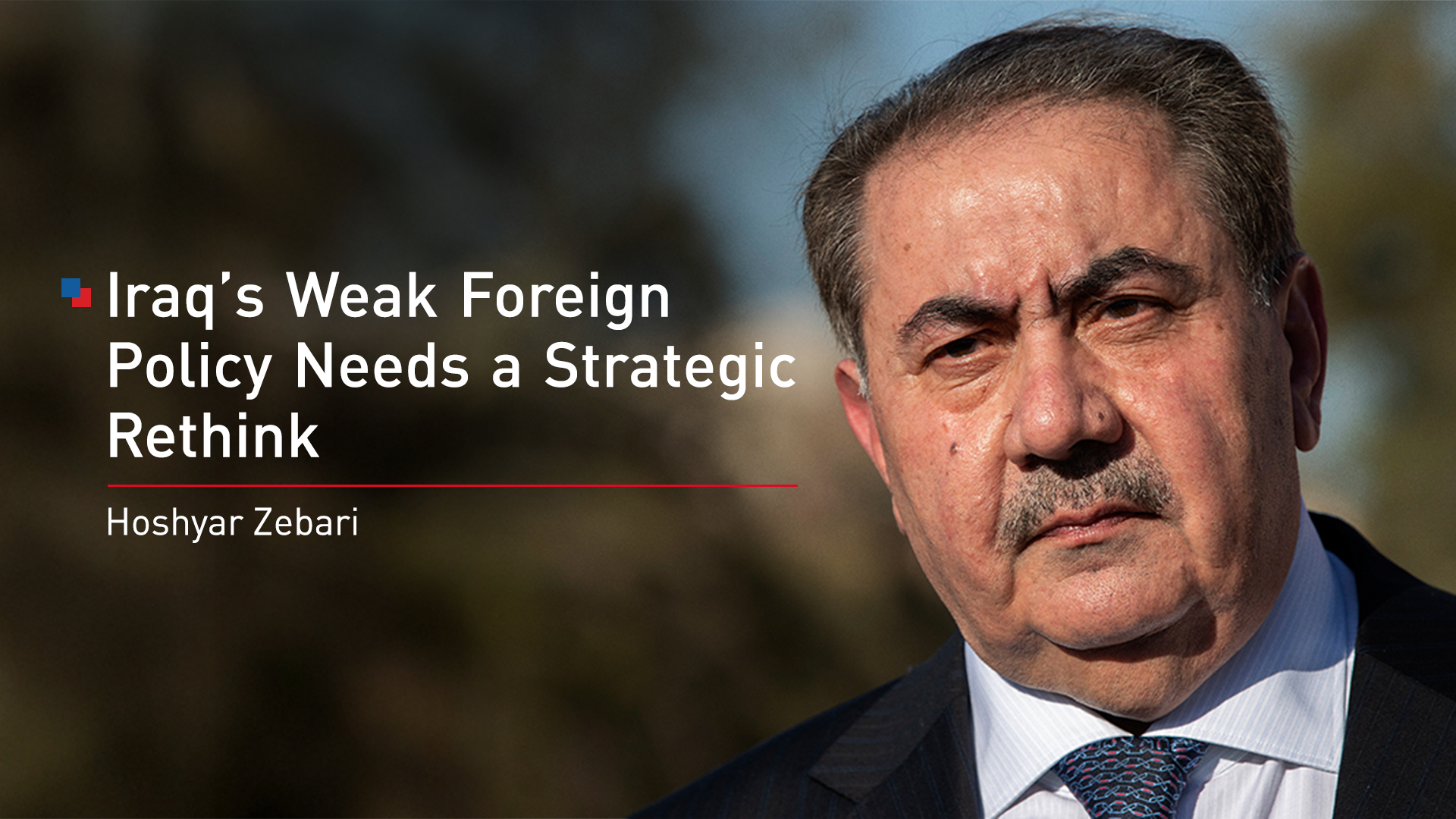Zebari Criticizes Baghdad’s Diplomatic Failures and Absence from Regional Affairs
"The Iraqi government and Prime Minister suffer from a lack of international and diplomatic depth in dealing with global affairs, and they are prisoners of the failed manifestations of the past," said Zebari.

ERBIL (Kurdistan24) — Former Iraqi Foreign Minister and Kurdistan Democratic Party (KDP) politburo member Hoshyar Zebari has strongly criticized Iraq’s foreign policy performance and the government’s limited international influence, accusing it of lacking diplomatic depth and being trapped in a legacy of past failures.
In a statement published on his official X account on Saturday, Zebari said the Iraqi government and Prime Minister suffer from “a lack of international and diplomatic depth in dealing with global affairs,” describing them as “prisoners of the failed manifestations of the past.”
He added that Iraq’s credibility and human communication in the diplomatic sphere have also eroded, urging that “this symposium should contribute to finding solutions.”
Zebari questioned Iraq’s absence from major developments shaping the Middle East, saying, “What has Iraq gained from its role and presidency of the Arab League summit? Where does it stand amid the fateful developments and transformations taking place across the Middle East, the Arab world, Palestine, and the peace process? There is a complete absence from these events — no presence, no influence, no opinion, no position. Decision-makers must conduct a serious review.”
Earlier in September, Zebari also criticized Iraq’s stance during the UN General Assembly vote on the two-state solution for Palestine. “In the recent UN General Assembly vote, 142 countries supported the French-Saudi initiative for a two-state solution, 12 opposed, and 10 abstained. Among the abstaining countries were Iran and Iraq. Globally, Iraq now stands with Iran and does not want a two-state solution,” he wrote.
Zebari lamented Iraq’s fading diplomatic role, asking: “Where is Iraq’s active and influential role today? Is this how you wish to exert influence and support the Palestinian cause while expecting the world to believe you?”
American and Western officials have long pointed to Baghdad’s failure to assert an independent and pragmatic foreign policy, as its political and security institutions remain deeply entangled with Iran’s influence.
Successive Iraqi governments have prioritized maintaining ties with Tehran — often at the expense of Iraq’s sovereignty and credibility on the global stage.
While Washington has repeatedly urged Iraq to reduce its dependency on Iran and restore genuine political independence, Baghdad has instead sought ways to quietly bypass U.S. sanctions against Tehran.
Iraqi officials have reportedly facilitated the transfer of funds from the national budget to Iran through state institutions and militia-controlled entities.
Iran-backed militias, many integrated into Iraq’s official security structure, are widely viewed as the real power brokers in the country. These groups, loyal to Tehran, shape foreign and domestic policy decisions on behalf of the government and maintain extensive control over Iraq’s economic and financial systems.
The U.S. Department of the Treasury has consistently targeted these networks. In its most recent action, announced Thursday, the Office of Foreign Assets Control (OFAC) imposed new sanctions on Iran-backed entities and individuals in Iraq for aiding the Islamic Revolutionary Guard Corps (IRGC) in evading sanctions, smuggling weapons, and conducting attacks. “These groups, including the U.S.-designated foreign terrorist organization Kata’ib Hizballah, exploit Iraqi institutions and the economy to generate revenue and undermine security,” OFAC said in its press release.
The sanctions targeted Iraqi banking officials and business entities directly linked to the IRGC-Qods Force and Kata’ib Hizballah, including the Muhandis General Company and its front, Baladna Agricultural Investments, accused of diverting public funds, laundering money, and supplying weapons to militias.
In response, the Iraqi government on Saturday issued a statement condemning the U.S. decision as “unilateral and unjustified.” Government spokesman Bassem Al-Awadi said the move contradicted the spirit of partnership between Baghdad and Washington and announced the formation of a committee to review the sanctions.
Baghdad reiterated its commitment to the rule of law and international cooperation but avoided directly addressing the Treasury’s allegations of corruption and militia financing.
The government’s reaction has been seen by many observers as an attempt to shield Iran-linked groups rather than confront them — further evidence of Tehran’s deep-rooted influence in Iraq’s political and economic landscape.